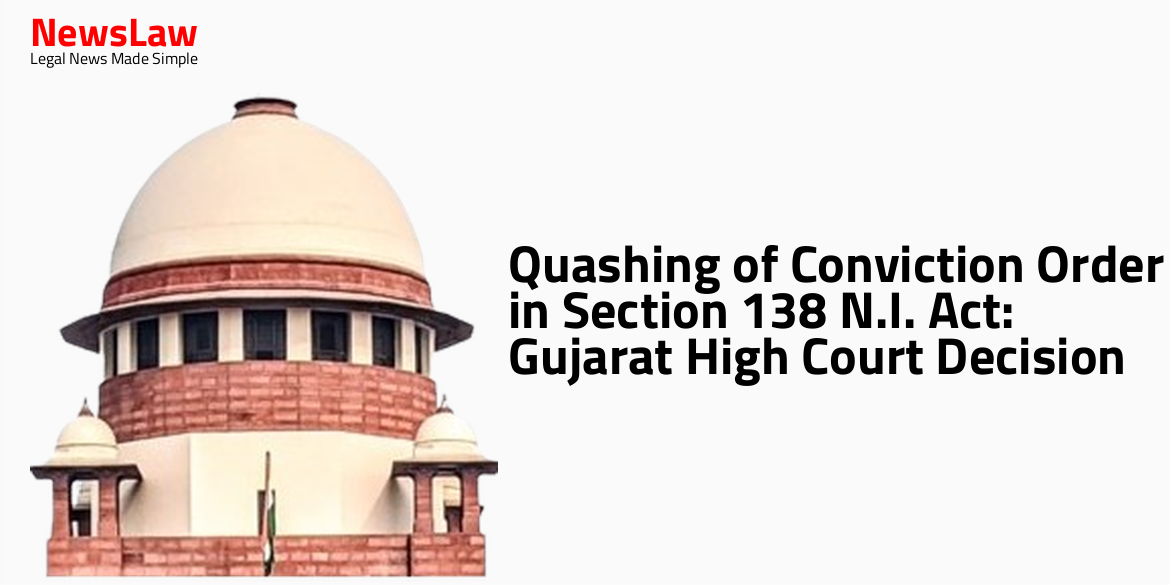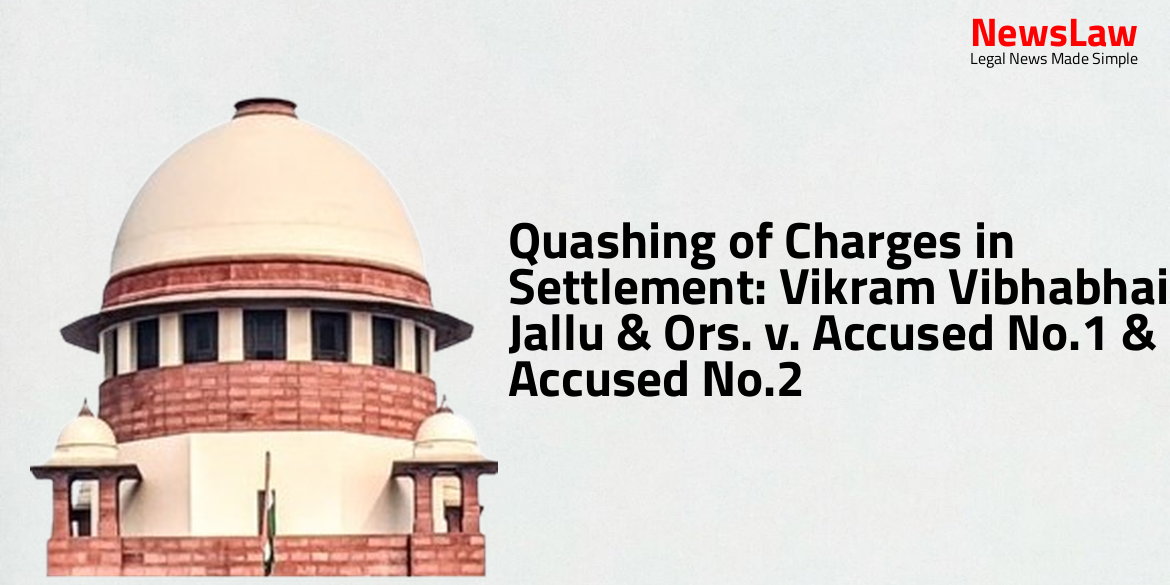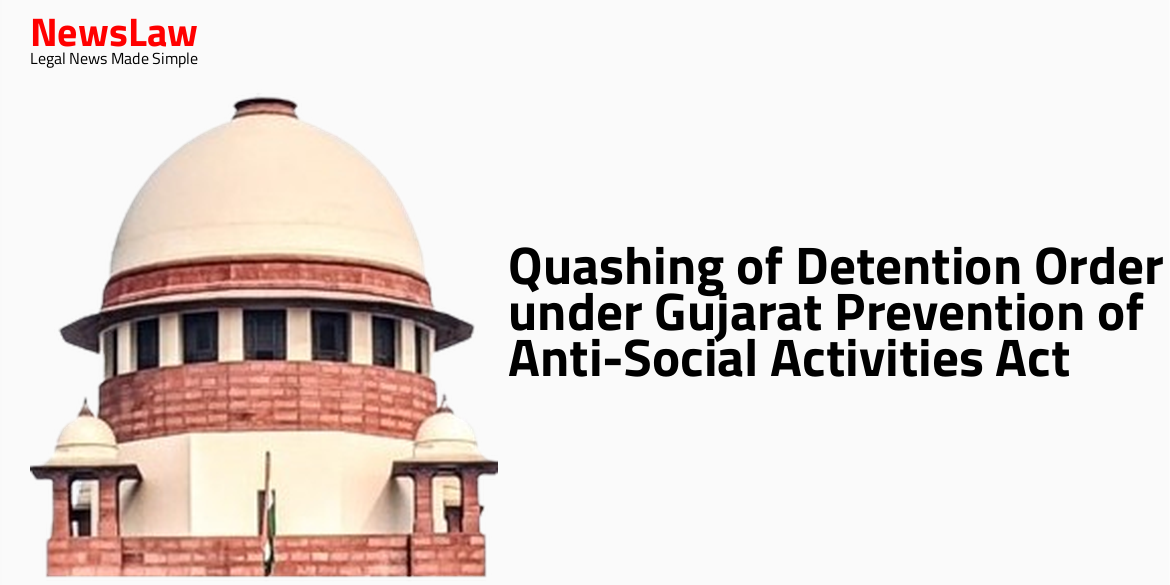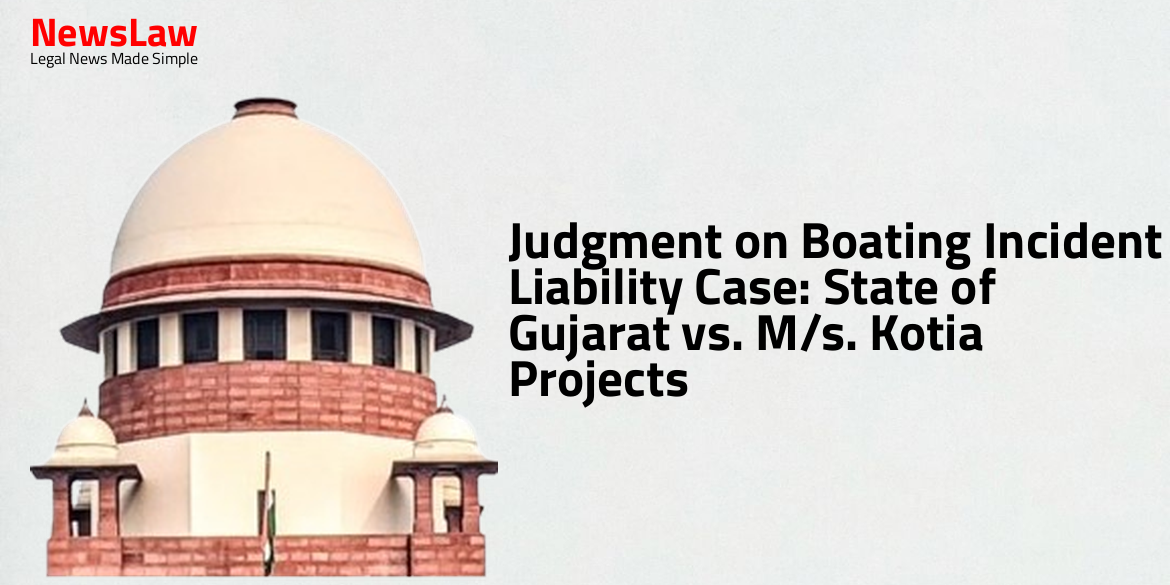In a recent judgment, the Gujarat High Court addressed the petition filed under Section 482 of CrPC to quash the conviction order in the matter related to Section 138 of the Negotiable Instruments Act. The Court highlighted the importance of utilizing statutory remedies before seeking relief, emphasizing the need for due process. Learn more about the case and its legal implications in this summary of the Gujarat High Court’s decision.
Facts
- The petitioner has filed a petition under Section 482 of CrPC to quash the judgment and order convicting him under Section 138 of the Negotiable Instruments Act.
- The petitioner did not utilize the alternative statutory remedy available under Section 374 of the CrPC before approaching the Court.
- The petitioner’s advocate argued that the Court has the power to quash the conviction order and can use inherent powers under Section 482 of CrPC despite the limited jurisdiction under Section 320 for compounding offenses.
- The advocate cited the case of Ramgopal vs State of Madhya Pradesh and previous orders of the Court to support his argument.
- It is noted that even though the offense is compoundable, compounding can be allowed up to the Supreme Court level as per the statute.
Analysis
- Statutory remedy is available, so the question of exercising power under Section 482 of the CrPC does not arise.
- Filing or availing the statutory remedy is necessary before seeking relief.
- Conviction is recorded, and the limitation period has expired, further warrant under Section 418(2) of the CrPC is in force and executed beyond the limitation.
- Not justifiable to exercise powers under Section 482 of the CrPC for three reasons: (i) High likelihood of flooding the constitutional courts with similar litigation, (ii) Exercising such powers after the limitation period is impermissible, and (iii) It would amount to the suspension of sentence under Section 389 of the CrPC.
- In compoundable offences, compounding of offence is allowed up to the Supreme Court level.
- Accused cannot directly approach the Supreme Court to compound the offence as it may be seen as an attempt to obstruct the proceedings of the competent court.
- The accused in this case has been convicted through due process of law, and despite the issuance of a warrant under Section 418 of the CrPC, it remains unserved.
- The conduct of the accused is a relevant factor to be considered.
- The petitioner did not utilize the statutory remedy of filing a criminal appeal.
- The High Court’s inherent powers under Section 482 of the CrPC should be sparingly used, especially when there is an alternative remedy available.
- Entertaining petitions under Section 482 when there is an alternative remedy is deprecated, as it can lead to a delay in the trial and potential miscarriage of justice.
- In this case, the petition is dismissed without further consideration.
Decision
- The learned 3 Additional Chief Judicial Magistrate, Gandhinagar is directed to execute the warrant issued against the petitioner and the Superintendent of Police, Gandhinagar.
- The Superintendent of Police, Gandhinagar must submit a report to the concerned Court within two weeks, detailing the steps taken for compliance of the order.
- The petition is dismissed at this stage without examining the merits of the case.
- If the parties appear before the learned Sessions Court, expedited hearing/proceedings of the Criminal Appeal may take place.
Case Title: PREMAL KAMLESHBHAI PATEL Vs. STATE OF GUJARAT
Case Number: R/CR.MA/7511/2024



